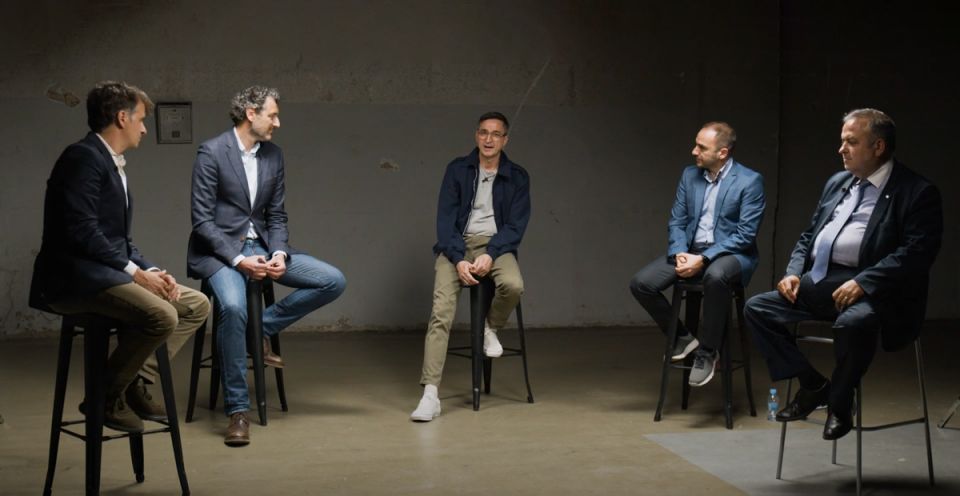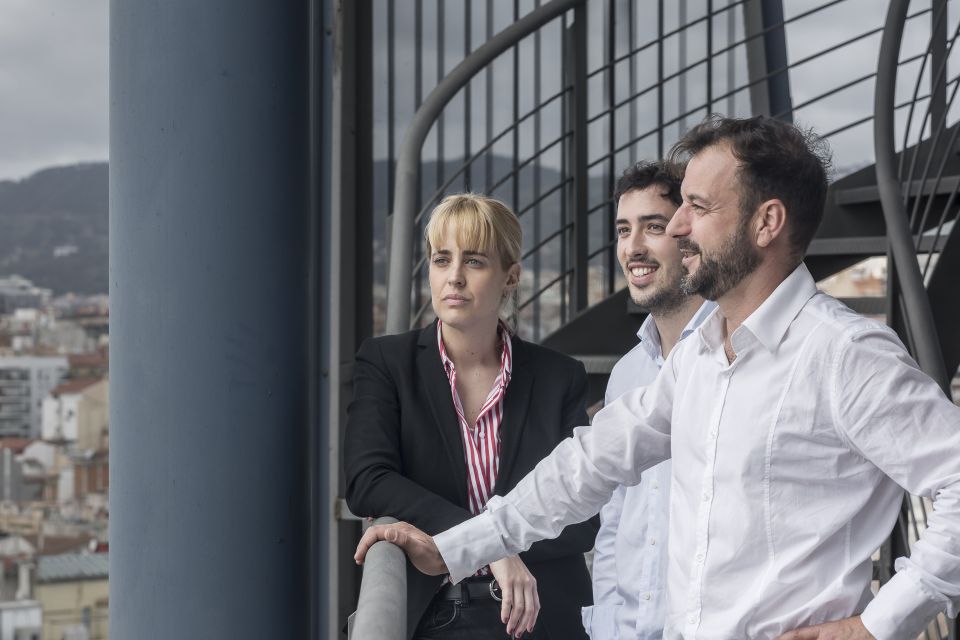Monapart at the 1st Real Estate Sector Round Table
We share how at Monapart we have always put the customer at the centre of our strategy. Caring for the customer is not only a question of values, which it is, but above all, of survival!
On 28 October last, José Luis Echeverría had the pleasure of participating in the 1st Real Estate Sector Round Table organised by MultiplicaMultiplica, a consultancy specialising in advanced analytics to help business growth. With more than 300 professionals, presence in 7 countries and nearly 3,000 projects behind it, Multiplica is a leader in converting users into customers.
At Monapart we have always put the customer at the centre of the strategybecause we know that often their journey is one-way and we live on recommendations, so taking care of the customer is not only a question of values, which it is, but above all, of survival! But things have changed a lot and we have to be very attentive to the challenges we face. In the real estate sector, we have experienced a change of business model. We have gone from classified ads to real estate portals; from the visiting client to the client who selects the offer; from the passive real estate agent due to the high demand, to the commercial activity for the sale and acquisition of product. In short, a new scenario that has generated new commercial and strategic needs.
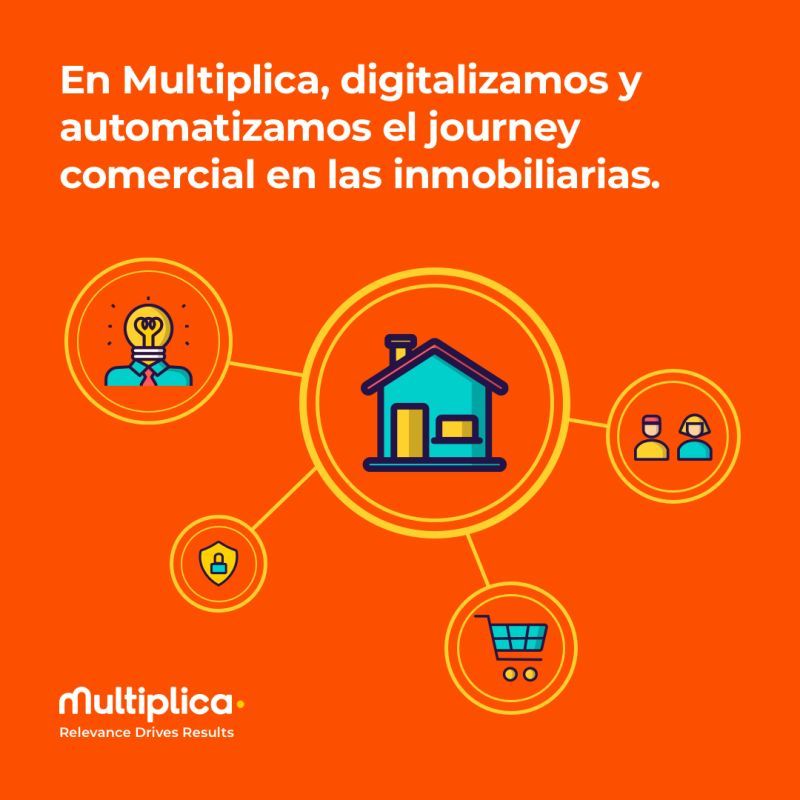
In view of these new challenges brought about by social, economic and technological change, Multiplica is organising the 1st Real Estate Sector Roundtable to focus on how these challenges are being addressed from a digital perspective, with a panel of experts from the sector, including CBRE Spain, Anticipa, JLL Spain, Engel & Völkers Spain and José Luis Echeverría representing Monapart. Special thanks to Jordi Ligero from Táctica Marketing and Marc Ribas and Rudolf Schouten from Multiplica for inviting us.
The client does not buy a home but a way of life, so being their 'partner' in this process is very powerful.
Points discussed at the I Real Estate Sector Round Table
1.- The buyer: What is the reality of the real estate sector? What are the needs of the client in the process? What challenges do we face as professionals?
2.- The current situation of the real estate sector:
After the real estate crisis, new construction slowed down and led to an increase in second-hand housing transactions compared to new construction.
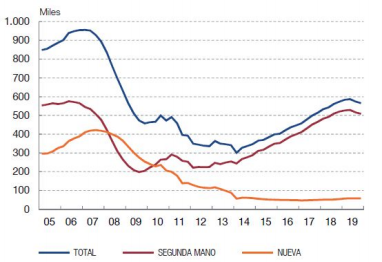
In parallel, we have seen how the socio-economic transformation of the population favours the rental market, approaching the average trend in other Eurozone countries.
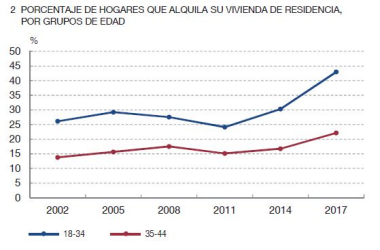
A purchase-oriented market: Both facts guide most players in the role of real estate brokerage in the purchase and sale market.
SOURCES: INE and Ministry of Transport, Mobility and Urban Agenda. Report on THE HOUSING MARKET IN SPAIN BETWEEN 2014 AND 2019 (2020, Bank of Spain).
An unbranded product. An unaccompanied customer.
- The tangible product, housing, is not associated with any brand or associated values.
- A product accessed by assigned intermediation. In a few cases, search advice is requested.
- The most important economic expenditure in a person's life (currently around 33% of a household's income) is made within an administrative intermediary service.
- A customer journey that can last several months that is poorly focused on the needs that are detected before, during and after the conversion.
3.- Buying/selling requirements:
- Information: Documentation to help you make the decision and understand the needs to be addressed.
- Service, not promises: look for quality of service, not guarantees or deadlines.
- Facilities: a simple, controlled and guided experience.
- Solutions: Easily access services that meet different needs.
- Control: to be aware of the evolution of the sale at all times.
Conclusions of the 1st Real Estate Sector Round Table
The client does not buy a home but a way of life, so being their 'partner' in this process is very powerful. Nowadays, the real estate professional does not seek to capture a product or a property but to provide a service, to capture a client and to seek a recommendation. This is why the real estate sector has to start thinking as a service of ease and not of necessity; added value through 360 services is a great weapon to fight against digital pure-players.
Professionals in the sector should not bow to the wishes of the owner, as in many cases the way to improve the offer is to say 'no'. Clients need to be properly advised so as not to erode the product in the long term, so as not to damage the supply of the portfolio itself. They need to be made aware of the process, including investing earlier.
One of the main challenges for the sector is to streamline the commercial journey by shortening processes with technology. In the old days, there was competition to be the first to call, whereas now the important thing is exclusivity, which is the big trump card.
The quality of the service is extremely important, because if it is not close to excellence, the lead may not continue. In addition, customer service must be agile and of high quality and must be based on technology + people. In the case of a customer who needs to buy and who is highly qualified, speed is important. But it must be taken into account that a quick message, with little work, can subtract more than add.
In the old days, there was competition to be the first to call, whereas now the important thing is exclusivity, which is the big trump card.
The digital transformation of the sector has been accelerated by COVID, but not only from the point of view of the professional, but also from the client's point of view. Technology has changed the real estate sector: 3D visits, electronic signatures... operations are very digital and the need is for the client to operate by these means. It is not a question of technology replacing but supportingThe customer expects a person to talk to him at certain critical points. The customer also wants reassurance at the beginning, but when he needs something he wants it on the spot and he needs someone he trusts.
Linked to the challenge of streamlining processes and becoming more efficient is lead pre-qualification. It is at the top of the funnel where improvements could be made. At present, we do not know what customers are looking for. The pre-qualification of the lead is very poor and the professional receives rather mediocre information. The lead that arrives today is like the one from 10 years ago. The sales force receives so much weight that it cannot attend to them, and this is where technology should be used to be agile, to qualify them and follow them up.
One issue that the sector accepts and needs to work on is a content strategy to accompany the commercial. This is currently being worked on vaguely and there is room for improvement. In this process, the questions to be asked can be formulated in order to catalogue the customer and, at the same time, all the customer's concerns can be answered, so that if they call, they can no longer ask any more questions.
Understanding the purchase as a minimum of three repeat purchases in a lifetime, recommendation outweighs loyaltyBut this is not the case in rental. In renting, a customer tracking and loyalty strategy makes sense, and as in monitoring, there is a lot to do.




